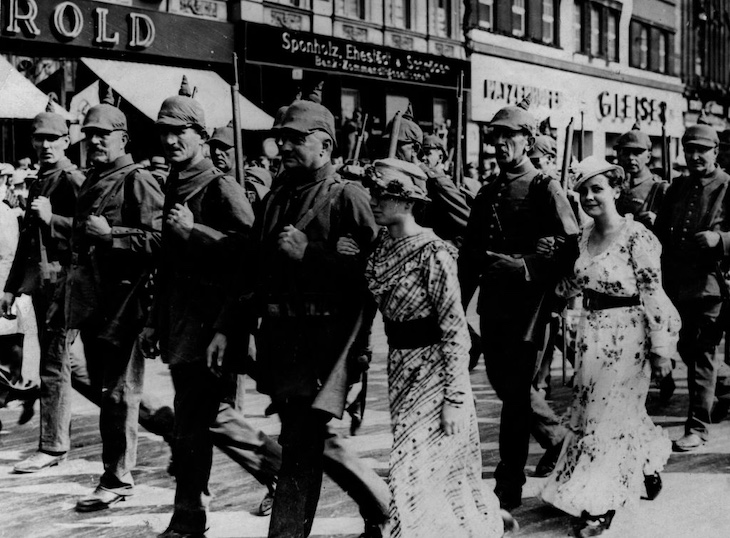Wars begin and end in controversy. The war that ended 106 years ago today with the armistice of 11 November 1918 carried the germ of controversy before it even broke out. Prior to Britain declaring war on the German Empire on 4 August the Germans rushed into print their ‘White Book’ of diplomatic documents on the war’s causes revealingly titled: How Russia and her Ruler betrayed Germany’s confidence and thereby made the European War. The day after war began Britain responded with its ‘Blue Book’, followed by the Russian ‘Orange Book’, the Belgian ‘Grey Book’ and the French ‘Yellow Book’ at the end of November 1914, entitled ‘How Germany forced the War’. By the summer of 1915 the Austrian ‘Red Book’ served up their version. Resorting to ‘coloured books’ was nothing new. But this war of self-justificatory diplomatic documentary ‘evidence’, with its skilful selection, expurgation and elision of texts, was on a grander scale than ever before.
The stakes in the Kriegsschuldfrage, or war guilt question, were extremely high
Prolongation of the physical war and the war of words went hand in hand.

Britain’s best politics newsletters
You get two free articles each week when you sign up to The Spectator’s emails.
Already a subscriber? Log in







Comments
Join the debate for just £1 a month
Be part of the conversation with other Spectator readers by getting your first three months for £3.
UNLOCK ACCESS Just £1 a monthAlready a subscriber? Log in